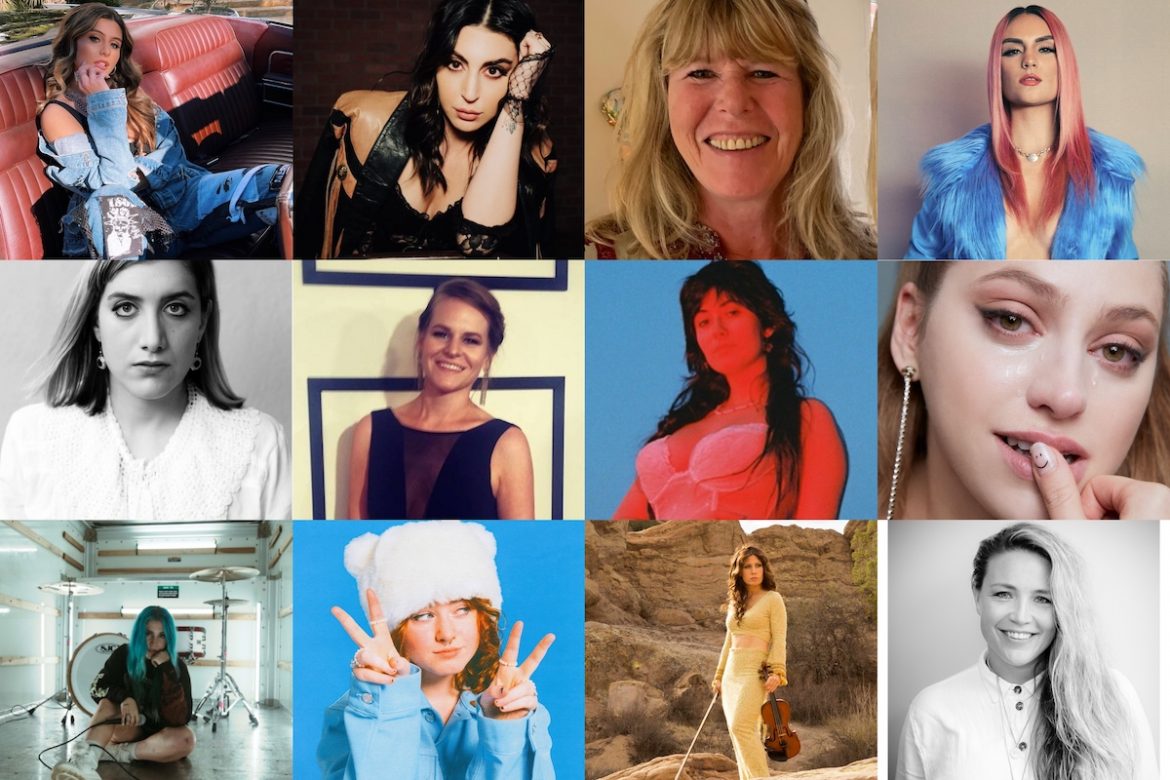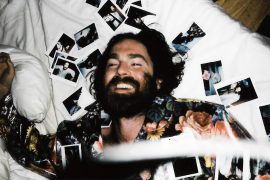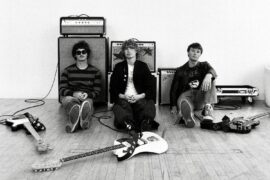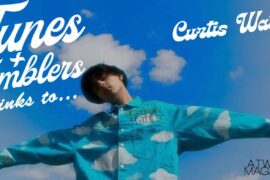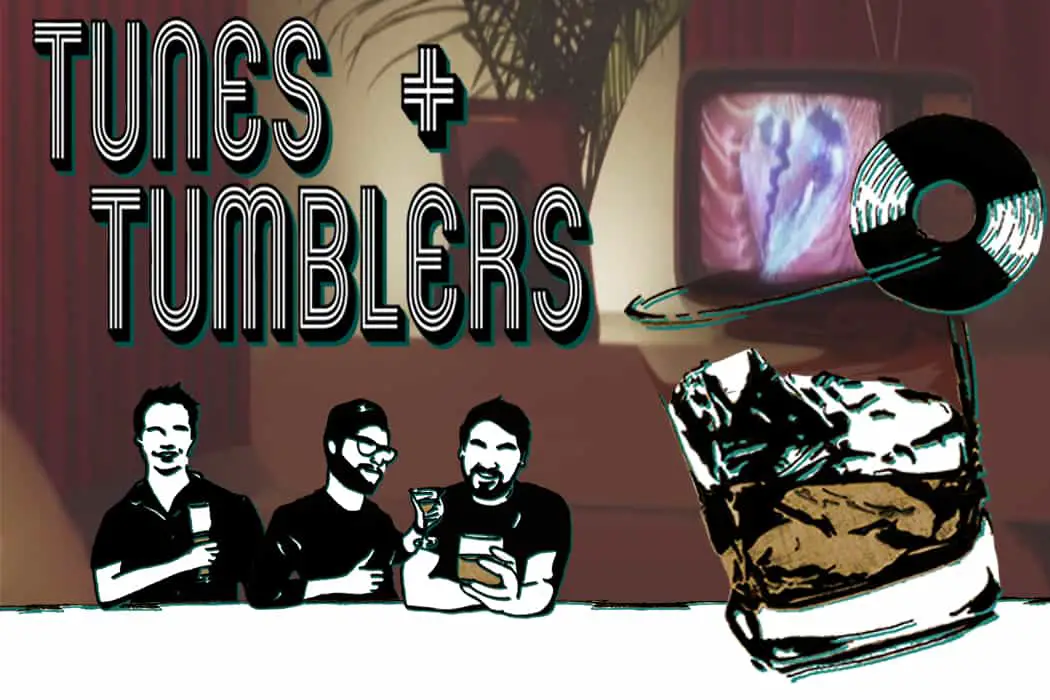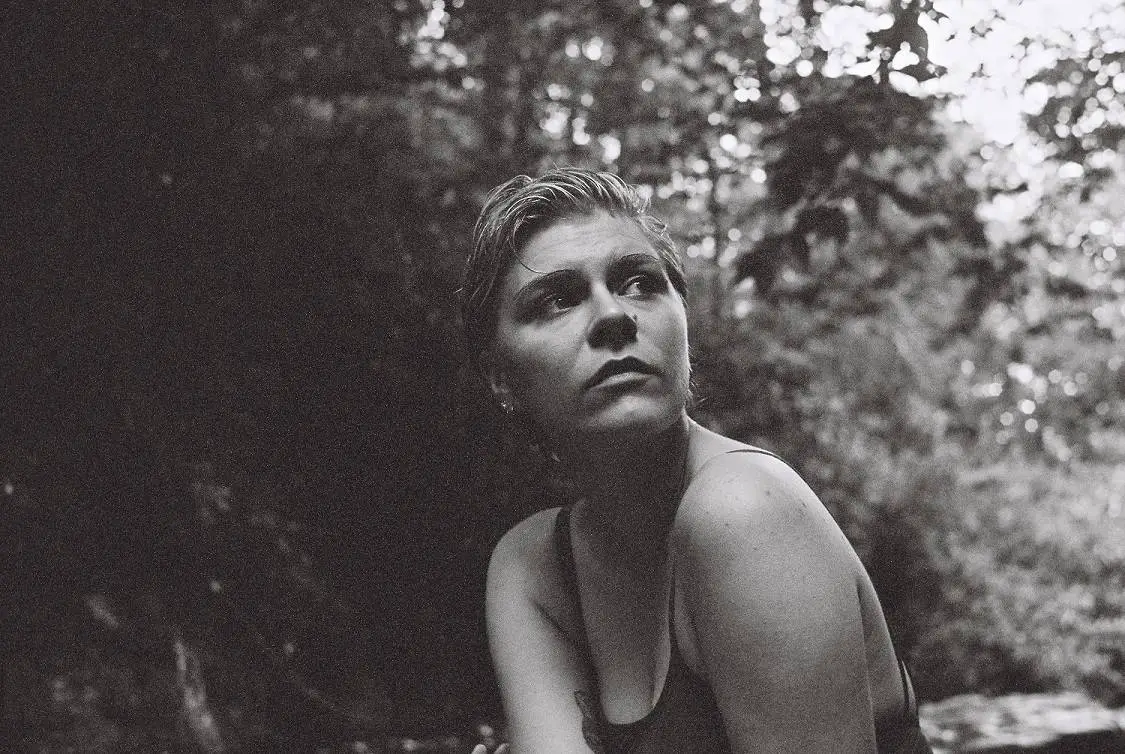Just as the pandemic began in 2020, a wave of protest and calls for equity were the anthems of the year, leading to important conversations surrounding inclusivity and equitable treatment for LGBTQ+ communities, BIPOC communities, and women. Intersectionality must be front and center in these conversations, and those conversations must continue into 2021. Today, and throughout the month of March, Atwood Magazine will be continuing those conversations in celebration of Women’s History Month — including artists and publicists alike discussing the state of the music industry and its role in gender equity.
In Part V of our series, Atwood spoke with and highlighted 12 women in the industry, asking them to reflect on the ways misogyny can be combatted, how they perceive their place in the industry, and how we can choose to challenge the music industry for better representation.
– Adrian Vargas, Managing Editor
– Mariel Fechik, Junior Editor
•• •• •• ••
Jenny March, Payday, BEVERLEE, Becca Gatrell (Wow and Flutter Music), Jessica Vaughn (LACES), Charlotte Sands, Casey Baer, Sarah Thompson (Charmfactory), Lili Haydn, Betta Lemme, Sedona, Megan Dembkowski (Listen Up Music).
•• ••
:: Atwood Magazine Celebrates Women ::
 follow our Women’s History Month playlist on Spotify
follow our Women’s History Month playlist on Spotify 
:: Jenny March ::

What kind of space do you want to carve out for yourself as a woman in this industry?
Misogyny can be so insidious in the music world. What are some ways you've been able to combat it and what kind of advice would you offer to women who are just coming into the industry?
Being a woman in the music industry can be tough at times, but it’s definitely getting easier. One of the first things I noticed that happened towards women more often than men, was that interviewers would consistently ask women about their sexuality and who they were dating, like that was all they should be known for, or that it was wrong that they dressed “too sexy”. Or that they needed a man. Women should be able to do what they want, date who they want, without being questioned or judged for it.
In the industry and as I’ve gotten older, I’ve tried to be more honest with who I am and not allow others to tell me I can’t or shouldn’t do something if I really liked it and wanted to do it. As women, we need to make sure we have a say in the things we do and have control over our work. I’d tell women who are just coming into the industry that you need to find a good team first that understands what you want, will listen to you, and believe in you. Believe in yourself! Having the right team around you will make everything easier. Don’t be afraid to demand what you want because other people will think they know what is right for you when only you know what’s best for you.
How would you challenge the music industry in order to increase meaningful representation and provide better support for women?
I’d ask the industry to recognize and award women for their talents, work ethic, and character, rather than their outside appearance and relationships. Start asking meaningful questions in interviews, credit the female producers and songwriters, and please play more women on the radio!
Lastly, what are you working on currently? Anything coming down the pipeline you’re excited to share with fans?
I am super excited to announce the release of my debut EP Madness out March 19th!! I started and finished it during quarantine and I hope my listeners are as proud of the music as I am. You’re getting all my personalities in this one!
:: Payday ::

What kind of space do you want to carve out for yourself as a woman in this industry?
Misogyny can be so insidious in the music world. What are some ways you've been able to combat it and what kind of advice would you offer to women who are just coming into the industry?
How would you challenge the music industry in order to increase meaningful representation and provide better support for women?
Lastly, what are you working on currently? Anything coming down the pipeline you’re excited to share with fans?
First up: P.U.K.E. Tapes Vol. 3 is coming out March 19! I’m always working on something, so get ready for when I take over!
:: BEVERLEE ::

What kind of space do you want to carve out for yourself as a woman in this industry?
Spaces! I would like to prove that women can do it all and be multi-faceted, not only as singers and writers (more feminine, expected roles) but also as producers and engineers. As a collaborator, I would like to be the person women and queer artists come to because they feel comfortable to share their stories, that I won’t speak over them or for them — and to know that their voice and point of view is needed. As an artist, I would love for people to hear their story in mine, and have the confidence to be wild and weird, and not feel shame or embarrassment to express themselves. I love this quote in Emma Cline’s The Girls where she says, “Evie thinks: All that time I had spent readying myself, the articles that taught me life was just a waiting room until someone noticed you — the boys had spent that time becoming themselves.”
Misogyny can be so insidious in the music world. What are some ways you've been able to combat it and what kind of advice would you offer to women who are just coming into the industry?
Being gay has allowed me to see power dynamics when I walk into a room, often immediately because I have no skin in the game ha! I was once at a Grammy party, and two women publishers I greatly respected were gathered around male managers talking at them. At one point, a manager got on top of the bar booth seat and spread his legs open wide. I got on top of the seat across from him, and imitated him in a warm, but pointed way, asking him if this is how I do it right. It helped that I knew the man and knew he wouldn’t be offended by it. It was more of a sister-brother vibe like cut the shit. In general, though, I think humor is a bad strategy. When you laugh with a man interrupting a woman to make an unrelated joke, you’re saying what he did is okay, that his voice is more important than the woman speaking. As women, we’re taught to be nice and the importance is placed on getting people to like us versus respect us. I’ve come to terms with the fact that it’s okay for not everyone to like you, and even if you think that person is powerful, you can matter-of-factly state, “Hey Joe, would you mind if Samantha finishes what she was saying then we’d love to hear.” Unfortunately, there is a bit of ego-petting you have to do. But it’s about being heard, so I would prefer to do that than allow them to barrel through.
How would you challenge the music industry in order to increase meaningful representation and provide better support for women?
When numbers are presented, like “there are only X number of female producers on the charts,” I would also like a caveat statement that says something to the effect of “AND we know there are more female producers out there.” This availability heuristic that female composers do not exist, is just that; it’s based on the limited worldview that person has versus an actual objective understanding of numbers. Sometimes misogyny is subtle because men are just calling on their circle, which is men. And so it takes actually not being lazy, having the motivation to work, to call up a friend or colleague and say “Hey I’d really love to work with a woman producer, do you know any?” That five-minute phone call could be the start of so many phone calls, of putting faces and names and making us real. This isn’t charity work, there are artistic and financial gains to this. Imagine having a young female artist struggling to express herself, why not have her work with a woman who she feels comfortable with, and who has experienced those same feelings, and can find nuanced ways to create that sonically?
Lastly, what are you working on currently? Anything coming down the pipeline you’re excited to share with fans?
I just released my first single “6X” after a ten-year hiatus writing for other artists. The project is named BEVERLEE, after my cousin Beverlee Jacobson who was murdered by her Hell’s Angel’s boyfriend in 1970. It’s a celebration of unheard voices and is left-of-center pop. I’m really really proud of it. The next single comes out in April, and the album Purple Violin drops early summer.
:: Becca Gatrell, Director, Wow and Flutter Music ::

What kind of space do you want to carve out for yourself as a woman in this industry?
I want to support music makers effectively by using my experience and knowledge to enable their careers. I don’t want to have to carve the space to do that in as well! But I will as there certainly needs to be more space for women to be heard in the industry.
Misogyny can be so insidious in the music world. What are some ways you've been able to combat it and what kind of advice would you offer to women who are just coming into the industry?
I am not sure I have been able to combat it as such but I do proactively choose to work with women to help increase their voice. And I challenge the women I work with if I think they are trapped in a misogynistic dynamic. As I hope they would me. Sometimes it is so insidious it can pass unnoticed in the day-to-day. The biggest thing I have learned is not to misread an ability for women to succeed by working around the problem, as combatting it. Women are increasingly in senior positions and better represented statistically, which is of course extremely important, but they are still not being heard. Equal numbers don’t equate to equally ‘heard’ voices. I would encourage all women to challenge misogyny head-on rather than taking on an “I won’t be deterred approach to it.”
How would you challenge the music industry in order to increase meaningful representation and provide better support for women?
Women need to be able to freely talk about the issues they encounter, and there needs to be discussion and debate amongst the whole industry with the issues raised. Without the freedom to explore these issues, the unconscious bias we are all subject to, men and women, ingrained in the roots of the business, will never really surface and the problem will remain. We can’t explore this with any clarity until women are better represented across the business.
:: Jessica Vaughn (LACES) ::

What kind of space do you want to carve out for yourself as a woman in this industry?
I want to make the industry a safer and equal/equitable space. I don’t mind taking on risk if that means others will have more opportunities down the road. I refuse the limits that others have assigned to my career.
Misogyny can be so insidious in the music world. What are some ways you've been able to combat it and what kind of advice would you offer to women who are just coming into the industry?
Creating a community of women you can trust and talk to, is so important. Because of that community, we are able to work together. Last year we created women sound off to show our industry that we stand in solidarity with each other. My advice is to not be quiet. The more we talk about these issues the less power they’ll cultivate. Don’t let people bully you into looking the other way. Have the uncomfortable conversation. It doesn’t mean you have to “cancel” that person – give them an opportunity to learn more and do better.
How would you challenge the music industry in order to increase meaningful representation and provide better support for women?
Believe women – number 1. Number 2 – stop making decisions out of convenience. Number 3 – education – so often others don’t even realize how sexist they are presenting.
Lastly, what are you working on currently? Anything coming down the pipeline you’re excited to share with fans?
I just shot a music video for my next single “Breaking My Heart” that I am overjoyed about. I even learned choreography, because why not? I have even more respect for Britney Spears than I did before (and I love her – FREE BRITNEY!).
:: Charlotte Sands ::

What kind of space do you want to carve out for yourself as a woman in this industry?
As a woman in the music industry my goal is to create a space where other female creators feel supported and their success and power is celebrated. I want to create a platform that amplifies their voices instead of silencing or undermining them which happens way too often in this industry.
Misogyny can be so insidious in the music world. What are some ways you've been able to combat it and what kind of advice would you offer to women who are just coming into the industry?
Some ways I’ve been able to combat misogyny in the music world include standing up for myself and not being afraid to make people uncomfortable. Women are so used to feeling uncomfortable and unsafe and we are taught to let things go and not overreact but that needs to change. Also hiring mainly women on my team, working and promoting female creators, challenging labels and other companies to do the same, and standing my ground when I have an opinion because we deserve to be a part of the conversations and if the space isn’t given to you, take it.
How would you challenge the music industry in order to increase meaningful representation and provide better support for women?
I would challenge the music industry to hire more women in every role. I would challenge them to use more female producers, writers, engineers, directors, etc for each and every project and make sure they receive equal pay and splits as the men on the projects. I would challenge them to stop fitting women artists into molds and putting an insane emphasis on their age and their appearance and instead of giving them the same freedom that male artists receive. The more authentic an artist is to their true self the more a fanbase will connect with them leading to higher chances of the artist having any success. Also booking the same amount of women as men for award shows/festivals etc.
Lastly, what are you working on currently? Anything coming down the pipeline you’re excited to share with fans?
I am currently working on a lot more music to release over the next year as well as really honing in on my live show setup. As soon as we are able to get back on stage I want to be ready to go without hesitation. I am mainly excited to keep releasing more music and continue building my relationship with fans over social media until I am able to see them in person!
:: Casey Baer ::

What kind of space do you want to carve out for yourself as a woman in this industry?
Misogyny can be so insidious in the music world. What are some ways you've been able to combat it and what kind of advice would you offer to women who are just coming into the industry?
Fortunately, I have not had to deal with this issue and I hope that continues. However, my advice to women coming into the industry would be to believe in themselves and their talent. It is never worth sacrificing your self-worth for any opportunity. Surround yourself with other strong women, and be strong enough to walk away from any situation that makes you uncomfortable. Finally, never be afraid to ask for help.
How would you challenge the music industry in order to increase meaningful representation and provide better support for women?
There are many new groups for women in the music business that help align women in the music industry with each other. I feel this is an amazing way to keep growing and supporting each other.
Lastly, what are you working on currently? Anything coming down the pipeline you’re excited to share with fans?
I am in the process of aligning with a charity that supports teens with mental health issues. It is an issue I have personally dealt with, so being able to share my experiences and support others will be an incredible opportunity. I am also in the process of putting together my first EP that I will be releasing later this year!
:: Sarah Thompson, Managing Director, Charmfactory ::

What kind of space do you want to carve out for yourself as a woman in this industry?
When I started out, my intention was to do something that would allow me to be independent and provide for me and my son – so I’ve always run my own business. I’ve been involved in digital marketing for music right from its infancy, way back when I’d have a job convincing label bosses just how important the internet was about to be! My knowledge has grown in-hand with digital’s evolution – it’s a constantly changing landscape and I’ve always loved it for that. As for what’s next? After three decades in music, I still get a buzz hearing new work from artists – then working to support them with the people and learnings I’ve picked up along the way. It’s such a privilege, and something I’ll always want to be part of.
As a woman in the digital marketing industry, I strive to carve out a space for myself that embraces innovation, adaptability, and a deep understanding of the evolving digital landscape. It is essential to stay up-to-date with the latest trends and strategies to effectively navigate the ever-changing digital marketing realm. One strategy that has proven to be highly impactful is product-led SEO. By leveraging the power of SEO and incorporating it into a comprehensive digital marketing strategy, businesses can enhance their online visibility, attract organic traffic, and drive meaningful conversions. Implementing a product led SEO guide can provide valuable insights into optimizing web content, improving user experience, and effectively targeting the right audience. By continuously honing my digital marketing skills and embracing emerging strategies like product-led SEO, I can remain at the forefront of the industry and continue to support artists and businesses with cutting-edge marketing techniques.
Misogyny can be so insidious in the music world. What are some ways you've been able to combat it and what kind of advice would you offer to women who are just coming into the industry?
Misogyny can be anywhere, so it’s great that women are increasingly equipped to recognise and discuss it more than they ever have been. However, there are numerous other challenges that we face in our working lives that can be hard to overcome too – not just dodgy male attitudes! I’ve always run my own business so it’s on me to succeed – if I’m ever bullied or insulted– I’m able to walk away, but not without trying to fix it first! Talking to people when bad things are happening helps, and garners support and advice. But, in the end, it all comes from within, and how we feel about ourselves and what we do: we have to believe we’re doing our best work in order to do our best work. So, I overcome challenges by knowing my shit and ensuring that I’m always working towards being the best at what I do.
How would you challenge the music industry in order to increase meaningful representation and provide better support for women?
If there’s a business that’s unable to see how women are under-represented or supported, paid less, or sidelined when they become mothers, it begs the question, “Why do we want to work for them?” Is it really up to women to think of ways to change these businesses from within? Change across the industry can come from women working together and from individuals being invested in their own “brand”: engaging with other women in music, finding a mentor, and getting smart about the choices they make. There are numerous companies out there – some with women at the helm – who perpetuate a preferable working culture for their people. At Charmfactory we have an internship program that helps newcomers develop the skills needed for this challenging industry. One vital thing we always share is this: remember you’re not a slave to your job – where you work and with whom is always your choice.
:: Lili Haydn ::

What kind of space do you want to carve out for yourself as a woman in this industry?
I don’t really think of myself as a “woman in the industry“ as much as I think of myself as a creator or “creatrix” bringing my blend of melodicism, groove, humanitarianism, and humor to whatever situation I encounter, whether that’s making albums, performing live, or scoring films/TV. I’d like people to think of me when they want music to tell a fantastic story, or want to be serenaded by something soulful that will also tickle your ears, and make you feel love for the world.
Misogyny can be so insidious in the music world. What are some ways you've been able to combat it and what kind of advice would you offer to women who are just coming into the industry?
My mom used to say “the only thing that’s fair is between you and the creation.” I say, just make your music, do the work, and don’t worry about small minds. Anytime I encounter small-minded thinking I try to access compassion. People act in discriminatory myopic destructive ways because they are not in touch with their own humanity or are acting from fear. When fear is activated in the brain, it stimulates the lizard brain/amygdala, which then hijacks the energy from the rest of the brain that is responsible for empathy and generosity. You can’t disabuse people of negative behavior with punishment or confrontation. Only inclusion, sense of safety, and love allow for real healing. So I try to access compassion and communicate. And of course, there are other times you just have to hold your nose and bear it or go around the misogynist to someone higher up on the food chain.
How would you challenge the music industry in order to increase meaningful representation and provide better support for women?
Awareness of the need for diversity and inclusion is the first step and I think we’re making great strides with that these days. Representation (on awards committees and executive boards) matters, but sometimes women are just as guilty of overlooking female perspectives as their male counterparts. For me, the essence of feminism is being able to control my own narrative and ideas and know that they will be heard. To quote my mom (seminal comedian Lotus Weinstock) “ The most oppressed minority is the individual.” To me, the endgame is that we all are treated with respect and dignity and every person’s voice is heard regardless of sex or race or religion or any of the identifiers that sometimes divide us.
Lastly, what are you working on currently? Anything coming down the pipeline you’re excited to share with fans?
I’m very excited about releasing my new album for Lakeshore Records More Love, which features songs from the different TV and film I’ve scored (Netflix’s Ginny & Georgia and Strip down rise up, and STARZ’s Ruth) as well as a few really important songs to me. It’s my first solo album in six years and is soaring and spacious and melodic and some of my best work! I’m also releasing a new double album (Night & Day) with my band Opium Moon as a follow-up to our Grammy-winning debut album. We’ve been called “World music from another World” and it’s the best music to either meditate or make out to! And otherwise, I’m working on a new film I can’t talk about yet. Big picture, I’m excited to see how we emerge from the pandemic and brief brush with fascism with a renewed creativity and humanity.
:: Betta Lemme ::

What kind of space do you want to carve out for yourself as a woman in this industry?
First thing that comes to mind is that I’d like to create a space where women don’t need to explain themselves or have their choices second-guessed. Maybe instead of carving out a space for women, we distribute power more equally and give less space to people who take up too much of it to the detriment of others. I do not want to have to fight for space for myself as a woman. There’s enough space for everyone. All we need to do is stop giving so much space to the same people. We could stop creating representation via tokenism and could start by bursting the bubble that is over-representing certain groups of people.
Misogyny can be so insidious in the music world. What are some ways you've been able to combat it and what kind of advice would you offer to women who are just coming into the industry?
One: Find yourself a manager that you can bring home to your family. Two: Misogyny comes in all shapes and sizes. Sometimes even by other women who have internalized misogyny as a means to survive misogyny in the industry. I’ve experienced different forms of misogyny, whether it be in a room working on a song, having to shout over producers (who were men) in the room that thought my two cents were equivalent to Monopoly money. I’ve also experienced situations where I was booking a session and I was told that a one-on-one session with a producer and myself wouldn’t be successful because they’d need someone in the room who was musical. Read that again.
I was never asked about my capabilities as a producer, whether I play instruments or write, or about my technical knowledge. It was just assumed that because I was a woman, all I’d have to contribute was my voice and only my voice. In another instance, I was being booked for a massive shoot where I was told last minute that I was to pose topless. Upon finding out this *minor* slip or info, I communicated with my team at the time that I felt very uncomfortable doing so and would have to decline my involvement in this major shoot. To my surprise, I was met with as much support as a training bra and was told to either beat it or bounce. This leads us back to point #1. Find yourself an incredible manager and team who have proven to share the same values as you and treat you as their family.
How would you challenge the music industry in order to increase meaningful representation and provide better support for women?
I challenge the music industry to reinvest at least half of the money they’re making off women, back into organizations FOR women. We don’t need tokenized representation. We need real representation and real representation means hiring women and paying them the equivalent (or more!) of men in equivalent positions. Representing women means trusting their voice, vision, business acumen, and their artistic integrity. Autonomy for women in their artistic process. We often talk about representation, but representation ends up being one month out of a year, rather than actual systematic change. Something for young women to keep in mind: surround yourself with a good team and do everything to protect your artistic vision on paper.
Lastly, what are you working on currently? Anything coming down the pipeline you’re excited to share with fans?
Yes. I wrote a song about how much I appreciate women. I hope one day the world will sing it and mean it.
:: Sedona ::

What kind of space do you want to carve out for yourself as a woman in this industry?
As a woman in the industry, I try my best every day to carve out a space for all women and femmes to feel safe, heard, and celebrated. I’m lucky enough to be in an all-girl band, which is such a nurturing environment. Learning from, working with, and creating alongside other women is something I continue to incorporate across all of my creative endeavors. Whether it’s writing a song, putting together a performance, or making a music video, I prefer female dominant teams because of how naturally uplifting and communicative everyone is to one another.
Misogyny can be so insidious in the music world. What are some ways you've been able to combat it and what kind of advice would you offer to women who are just coming into the industry?
For women who are just coming into the industry, please always follow your heart, listen to your gut, and don’t take anything personally, especially if it’s some agro hoopla from a man. I am blessed to have some incredibly supportive male collaborators who have shown me firsthand how I deserve to be treated in this industry. Because of them, the bar is high, I know my worth, and will not settle for less.
How would you challenge the music industry in order to increase meaningful representation and provide better support for women?
I think the music industry could always use more women in it, especially in positions of power. We need more female label-heads, A&R’s, live sound engineers, producers, the list goes on and on. There’s an endless number of roles in the industry for a woman to fill – any and all! Would also love to see some more music grants specifically for women in the industry as well as more compensation on streaming services.
Lastly, what are you working on currently? Anything coming down the pipeline you’re excited to share with fans?
I’m currently releasing a single every month for the whole year with my band. I’m working on a couple different full-length albums simultaneously as well. Our next song, “Drifting Days,” comes out March 16th, followed by another single in April, May, and every month thereafter! Stay tuned.
:: Megan Dembkowski, Senior Press Manager, Listen Up Music Promotions ::

What kind of space do you want to carve out for yourself as a woman in this industry?
Carving out a place of respect has always been important to me. In such a male-dominated industry, it’s easy to get placed at a level below your male counterparts with your ideas and opinions tossed aside. Over the years, I feel that my years of hard work and building a reputation has allowed me to be given a voice at the table and being taken seriously. I know my position is very common to women across the board, as we’re oftentimes expected to be agreeable and compliant. My place in this industry has become one where I may not agree with you, I’m going to speak up, tell you why, and we’ll work this out. R-E-S-P-E-C-T.
Misogyny can be so insidious in the music world. What are some ways you've been able to combat it and what kind of advice would you offer to women who are just coming into the industry?
I’ve been blessed to have an incredible team of women around me, and together we can talk through issues that make us uncomfortable and confront misogyny one battle a time. It oftentimes takes a conversation with trusted colleagues to properly process a situation and say ‘What just happened? How did that happen? How could they say that to me? Will I be victim shamed?’ Sometimes we have to pick our battles sadly, but I’m confident we will win the war. If there’s anything I would share with women coming into the industry, it would be to set your personal /professional boundaries and don’t let anyone pressure you to break those or make you feel insecure setting them so.
How would you challenge the music industry in order to increase meaningful representation and provide better support for women?
I would challenge the music industry to stop supporting artists and their music that promotes misogyny and those accused/charged with allegations and scandals. I realize there’s money to be made here, but we have to break the cycle to make progress.
— —
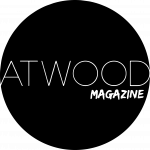
Connect to Atwood Magazine on
Facebook, Twitter, Instagram
Discover new music on Atwood Magazine
:: Atwood Magazine Celebrates Women ::
 follow our Women’s History Month playlist on Spotify
follow our Women’s History Month playlist on Spotify 

